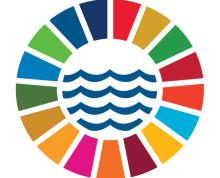Foreword
With this issue of the UN Chronicle, we hope to help inform the discussion on the culture of prevention, and contribute to the objective of strengthening and sustaining peace and security, human rights, the rule of law, and development, for current and future generations.
The Ingredients of Prevention
The present great power policies are not conducive to peace in the world. A continuance of these policies threatens to dismantle the existing global order and plunge the world into deepening distress—for human beings as well as for the health of the planet.
Media and Information Literacy as a Means of Preventing Violent Extremism
UNAOC understands that censoring media which is perceived as potentially harmful will not effectively curtail the spread of media messages appealing to youth with violent extremist narratives.
Preventing Crisis and Conflict: Women's Role in Ongoing Peace Processes
Women play a variety of roles in complex, multitrack peace processes. They can sit at the formal negotiating table, on a technical committee or subcommission, or they can be outside the talks engaged as civil society actors in following developments. All of these roles are critical.
Our Oceans, Our Lives
Sustainable Development Goal 14, Life Below Water, does not end with the oceans, but instead, starts with the oceans. By protecting our oceans, we are able to work towards living healthier more sustainable lives with fewer contaminants in our food, harnessing natural energy resources such as wind and tidal energy, and reducing the effects of climate change.
We Must Protect the Bounty and Beauty of the Sea
As the United Nations Goodwill Ambassador for Biodiversity, I have travelled the world speaking to people about the defining challenge of our generation: bringing the way we live into a sustainable interaction with our planet.
Climate Change Poses a Threat to Our Oceans
Oceans, however, happen to be borderless and are also unevenly distributed across the planet. We cannot protect our share of the ocean with walls; instead, we must cooperate in a spirit of solidarity if we are to succeed in preserving and protecting the water that we have at our joint disposal. We must work together with our closest neighbours and cooperate at a global level, between countries.
The Ocean Conference: A Game-Changer
The Ocean Conference will be humanity's first universal moment of accountability to remedy the woes we have put upon the Ocean. We will come out of the Conference armed with a broad set of partnerships, commitments and measures to be put into action.
Mobilizing the Global Community to Achieve SDG 14
We cannot continue, let alone accelerate, the changes we are causing to ocean ecosystems. That is why the United Nations system is working with Governments and international, private sector and civil society organizations to strengthen governance structures and promote the implementation of international legal instruments and various management tools, such as integrated coastal zone management and marine spatial planning, and to facilitate a coordinated approach to the application of law and policies for environmental protection and sustainable economic development.
A Conference to #SaveOurOcean
Despite their critical role in sustaining life in this world, our oceans are increasingly threatened, degraded or destroyed by human activities, reducing their ability to provide crucial ecosystem services.









